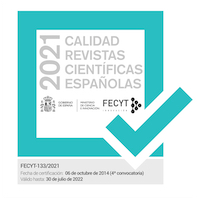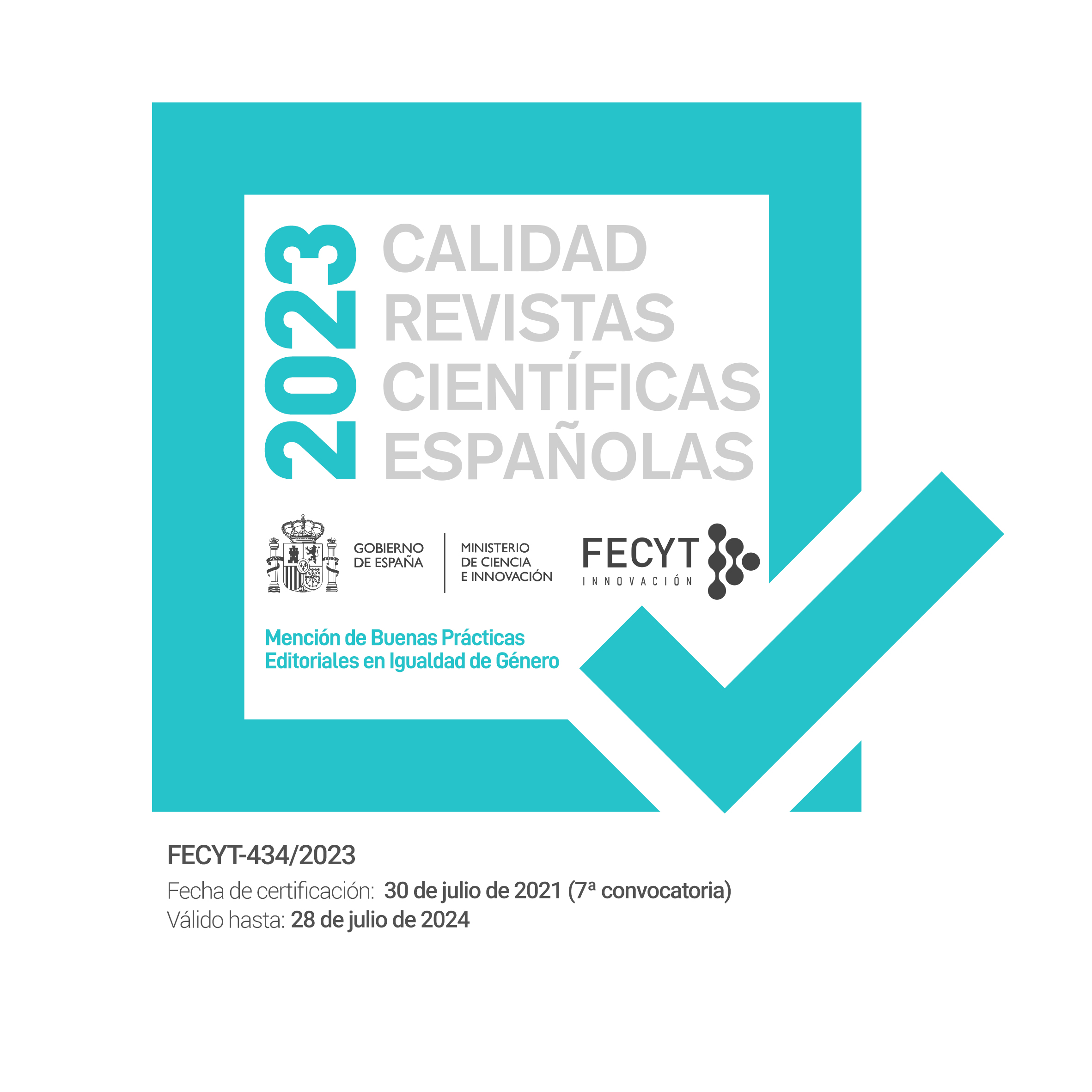Innocent III between law and society: customs, scandals and the popular consent
Keywords:
Innocent III, scandal, custom, society, consentAbstract
According to medieval canon law, legal rules could be waived, thus avoiding any scandals and therefore preventing a motive for public discord. As regards the custom, this principle was shaped according to the religious and political contingencies, in order to recognize or deny any effects to customary rules. Different solutions were adopted with a view to maintaining social support towards the institutions: it was necessary to take into account both the popular spirit expressed abiding by the customs and the reactions of public opinion to the application or non-application of them. Innocent III helped to figure out the legal relevance of scandals, through the principle that it was essential to avoid at all costs dissents or oppositions in the Christian community: sometimes he uprooted the customs contrary to that of the Roman Church, which were considered dangerous to the unity of faith; other times he secured the application of the rites to which the population showed the greatest attachment. The policy of Innocent III urged, on this point, the remarks of the canonical doctrine: his decretals and the fourth Lateran council constitutions were utilized in the period of the great schism, in order to balance out the need both to maintain the unity within the Church and to respect the different ceremonial practices.
Keywords: Innocent III, scandal, custom, society, consent.
References
<p>Battisti, Francesco M . <em>Sociologia dello scandalo</em>. Laterza, 1982.</p>
<p>Benson, Robert Louis. <em>Bishop-Elect: a study in medieval ecclesiastical office</em>. Princeton University, 1968.</p>
<p>Bombi, Barbara. “Innocent III and the “praedicatio” to heathens in Livonia (1198–1204).” <em>Medieval History Writing and Crusading Ideology</em>. Villads Jensen, K., Lehtonen, T. Eds. Tampere, 2005.</p>
<p>Comotti, Giovanni. <em>La consuetudine nel diritto canonico</em>. Padova, 1993.</p>
<p>Conde, Pierre Yves. "Le scandale canonique entre concept théologique et signe linguistique." <em>Revue de droit canonique</em> 50 (2000).</p>
<p>Condorelli, Orazio. “Dottrine sulla giurisdizione ecclesiastica e teorie del consenso: il contributo di canonisti e teologi al tempo della crisi conciliare.” <em>Stagnation oder Fortbildung? Aspekte des allgemeinen Kirchenrechts im 14. und 15</em>. Bertram, M. Ed. Tübingen, 2005.</p>
<p>Condorelli, Orazio. “Francesco Zabarella sull’origine della giurisdizione ecclesiastica e civile.” <em>Science politique et droit public dans les facultés de droit européennes (XIIIe-XVIIIe siècle).</em> Stolleis, Michael, and Jacques, Krynen. Eds. Frankfurt, 2008.</p>
<p>Condorelli, Orazio. <em>Principio elettivo, consenso, rappresentanza. Itinerari canonistici su elezioni episcopali, provvisioni papali e dottrine sulla potestà sacra da Graziano al tempo della crisi conciliare (secoli XII-XV)</em>. Roma, 2003.</p>
<p>Cortese, Ennio, and Pennington, Kenneth. ”Pietro d’Ancarano.” <em>Dizionario biografico dei Giuristi Italiani.</em> Bologna, 2013.</p>
<p> Cortese, Ennio. “Baldo degli Ubaldi.” <em>Dizionario Biografico dei Giuristi Italiani</em>. Bologna, 2013.</p>
<p>Dortel Claudot, Michel. “Le Prêtre et le mariage: évolution de la législation canonique des origines au XIIe siècle.” <em>L’Année canonique</em> 17 (1973).</p>
<p>Duggan, Anne J. "Conciliar Law 1123–1215: The Legislation of the Four Lateran Councils." <em>The history of medieval canon law in the classical period. 1140-1234: from Gratian to the Decretals of pope Gregory IX</em> (2008).</p>
<p>Erdö, Péter. "I criteri per la designazione dei vescovi nel Decreto di Graziano." <em>Il processo di designazione dei vescovi. Storia, legislazione, prassi.</em> Città del Vaticano, 1996.</p>
<p>Fiori, Antonia. "Il giuramento di innocenza nel processo canonico medievale." <em>Storia e disciplina della ‘purgatio canonica’</em>. Frankfurt am Main, 2013.</p>
<p>Foreville, Raymonde. <em>Latran I, II, III et Latran IV</em>. Vol. 6. Paris, 1965.</p>
<p>Fossier, Arnaud. "Propter vitandum scandalum»: histoire d’une catégorie juridique (XIIe-XVe siècle)." <em>Mélanges de l'Ecole française de Rome. Moyen-Age </em>121.2 (2009).</p>
<p>Gaudemet, Jean. “De l’élection a la nomination des éveque.”<em> Il processo di designazione dei vescovi. Storia, legislazione, prassi</em>. Città del Vaticano, 1996.</p>
<p>Gaudemet, Jean. “L’élection épiscopale d’après les canonistes de la deuxième moitié di XIIe siècle.”<em> Eglise et société en Occident au Moyen Age</em>. London, 1984.</p>
<p>Gaudemet, Jean. “La coutume en droit canonique.” <em>La coutume, II, Europe occidentale médiévale et moderne</em>. Bruxelles, 1990.</p>
<p>Gaudemet, Jean. <em>Les élections dans l'Église latine des origines au XVIe siècle</em>. Vol. 2. París, 1979.</p>
<p>Gigliotti, Valerio.<em> La tiara deposta. La rinuncia al papato nella storia del diritto e della Chiesa</em>. Firenze, 2014.</p>
<p>Gilissen, John. <em>La coutume</em>. Turnhout, 1982.</p>
<p>Gill, Katherine. "Scandala: controversies concerning clausura and women's religious communities in late medieval Italy." <em>Christendom and its Discontents</em>. Cambridge, 1996.</p>
<p>Gouron, André. "Non dixit: Ego sum consuetudo." <em>Zeitschrift der Savigny-Stiftung für Rechtsgeschichte. Kanonistische Abteilung</em> 74.1 (1988).</p>
<p>Helmholz, Richard H. <em>The spirit of classical canon law</em>. Athens, 1996.</p>
<p>Helmholz, Richard. "Scandalum in the Medieval Canon Law and in the English Ecclesiastical Courts." <em>Zeitschrift der Savigny-Stiftung für Rechtsgeschichte. Kanonistische Abteilung</em> 127 (2010).</p>
<p>Holland Smith, John. <em>The Great Schism, 1378</em>. London, 1970.</p>
<p>Jacob, Ernest F. "Panormitanus and the Council of Basel." <em>Proceedings of the Third International Congress of Medieval Canon Law. </em>Città del Vaticano, 1971.</p>
<p>Lindsay, Bryan. "Periculum animarum: Bishops, Gender, and Scandal." <em>Florilegium</em> 19 (2002).</p>
<p>Lindsay, Bryan. "Scandle is heaued sunne." <em>Florilegium</em> 14 (1996).</p>
<p>Maccarrone, Michele. "Gli inizi del cristianesimo in Livonia-Lettonia." Città del Vaticano, 1989.</p>
</div>
<p>Maccarrone, Michele. <em>Nuovi studi su Innocenzo III</em>. Lambertini, R. Ed. Roma, 1995.</p>
<div>
<p>Maccarrone, Michele. <em>Studi su Innocenzo III</em>. Padova, 1972.</p>
<p>Maceratini, Ruggero. <em>La glossa ordinaria al decreto di Graziano e la glossa di Accursio al codice di Giustiniano: una ricerca sullo status giuridico</em><em> dell’eretico</em>. Vol. 39. Università degli studi di Trento, 2003.</p>
<p>Maleczek, Werner. "Innocenzo III." <em>Enciclopedia dei papi</em> 2. Roma, 2000.</p>
<p>Mayali, Laurent. “La coutume dans la doctrine romaniste au moyen age.”<em> La coutume, II, Europe occidentale médiévale et moderne</em>. Bruxelles, 1990.</p>
<p>Mcintyre, John. <em>Customary law in the Corpus Iuris Canonici</em>. San Francisco, 1990.</p>
<p>Miller, Maureen Catherine. <em>Clothing the Clergy: Virtue and Power in Medieval Europe, C. 800-1200</em>. Ithaca, 2014.</p>
<p>Moore, John. C<em>. Pope Innocent III and his world</em>. Ashgate, 1999.</p>
<p>Nacci, Matteo. "Le consuetudini religiose: un contributo della storia del diritto in un contesto di libertà religiosa e pluralismo culturale." <em>Apollinaris</em> 83.2 (2010).</p>
</div>
<p>Nacci, Matteo. “Riflessioni sulla consuetudine canonica di Francesco Suarez nel contesto della Seconda Scolastica.” <em>Apollinaris </em>82 (2009).</p>
<p> Naz, Raoul. “Scandale.” <em>Dictionnaire de Droit Canonique</em>. Vol.VII. París, 1965.</p>
<p>Nemo Pekelman, Capucine. "Scandale et vérité dans la doctrine canonique médiévale (XII e-XIII e siècles)." <em>Revue historique de droit français et étranger </em>(2007).</p>
<p>Padovani, Andrea. “Giovanni Nicoletti da Imola.” <em>Dizionario Biografico dei Giuristi Italiani</em>. Bologna, 2013.</p>
<p>Quaglioni, Diego, Aubert, Roger, and Fedalto, Giorgio. "Storia dei Concili." Balsamo, 1995.</p>
<p>Roquebert, Michel. <em>I catari: Eresia, crociata, Inquisizione dall’XI al XIV secolo</em>. Cinisello Balsamo, 2003.</p>
<p>Sommerlechner, Andrea.<em> Innocenzo III, Urbs et orbis: atti del Congresso internazionale Roma, 9-15 settembre 1998</em>. Roma, 2003.</p>
<p>Storti, Claudia. "Le dimensioni giuridiche della curtis regia longobarda."<em> Le corti nell’alto medioevo (Spoleto, 24-29 aprile 2014). </em>Spoleto, 2015.</p>
<p>Tedeschi, Mario. “Nicolò dei Tedeschi al Concilio di Basilea.”<em> Revista española de derecho canónico</em> 53 (1996).</p>
<p>Trichet, Louis. <em>Le costume du clergé</em>. Paris, 1986.</p>
<p>Ullman, Walter. <em>The origins of the great schism: a study in fourteenth-century ecclesiastical history</em>. London, 1967. </p>
<p>Wehrlé, René. <em>De la coutume dans le droit canonique: essai historique s' étendant des origines de l'Église au pontificat de Pie XI</em>. París, 1928.</p>









